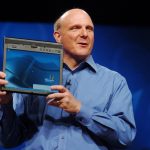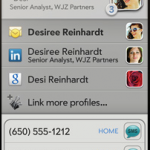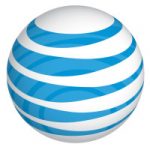Ten resolutions Microsoft should make for 2010

Each year, I offer a list of things Microsoft should do in the coming year, in lieu of making predictions. It's a bit arrogant to tell Microsoft what to do, but I've got a good track record of giving advice that is right. The year ahead will be challenging for Microsoft, as the company struggles against weak global economies and to successfully launch cloud services.
Ten resolutions aren't enough. I had to ignore so many others, such as keeping CEO Steve Ballmer (don't fire him!) or uniting Xbox and Zune (something already underway). The list is in order of importance, from least to most, from 10 to 1.
2000-2009: Microsoft's decade of shattered dreams

This will be the toughest commentary I likely will ever write about Microsoft. It is toughest for me to compose because I see what Microsoft could have been in 2009 from where it started in 2000. It is toughest on Microsoft, more than anything I may ever write again about the company.
I dedicate this seemingly harsh post to all the Microsoft employees that privately have complained about management problems -- not because they were mad or resentful but because they desperately wanted to fix the problems. They spoke to me in confidence out of their love for Microsoft. I apologize for not speaking up for them before. I do so today, as reflection on the past to shed light on future actions. The decade 2010 could be better if Microsoft learns from its mistakes.
10 reasons why Microsoft must buy Palm now

The new year is time for reflection and planning. I've got a New Year's resolution for Microsoft: Buy Palm and use the hardware and software to jumpstart your mobile strategy. Palm the company is struggling and may not survive past 2010. But its technology is worthwhile. WebOS is a modern, mobile operating system. So what if it's based on Linux? What operating system did Hotmail run when Microsoft bought it more than a decade ago? You know the answer. Linux is better than nothing.
My list is in no order of importance, because all the reasons are important and they are interrelated.
If mobile-to-cloud sync is big in 2010, it's game over for Microsoft

Sync will define connected tech products released or updated in 2010 and the few years that follow. Tech companies that get sync right will set the agenda for the delivery of content and services. Right now, Amazon, Apple and Google are sync leaders. Microsoft is a player but competing in the wrong game.
In a March 2008 blog post, I asserted that "synchronization is the natural killer application for the connected world." I also warned that "should Google get synchronization right before Microsoft, it would be game over. Google would be able to extend the relevancy of the Web platform back to the desktop on its terms -- think invading army -- and across many devices or services." It's game over now, and Microsoft has lent Google a helping hand in self-destruction.
Will 2010 be another year of Apple iteration, not innovation?

Apple is ending 2009 with a seemingly big bang. The stock is soaring higher than ever, lifted by scathes of rumors about an impeding tablet announcement. But tablets are oh-so 2001, when Microsoft Chairman Bill Gates showed off the Tablet PC. Apple tablet rumors show how much hype -- and not might -- is lifting Apple's share price. Hype has a way of turning on companies. Just ask Microsoft, which hype meter measured off the scale in 1995, but barely registers a decibel today.
Few companies reach Apple's success level in a day, a week, a year or even five years. Successful companies make strategic investments over time and many still fail to reach the stratosphere, or, for that matter, escape velocity. Apple made some wise strategic investments after the turn of the century, benefitted from good luck and rebuilt the brand image through its retail stores and smart marketing efforts.
Broken Berry: RIM runs out of free passes

Like the other over-50% of smartphone-owning people in North America, I'm quite the fan of my BlackBerry. Even in an era when newer kids on the block -- namely Apple's iPhone and Google's Android -- garner more accolades and headlines for having slicker interfaces and cooler (and more) apps, the BlackBerry platform remains the safe, reliable choice that's good enough for most consumers and businesses. Despite analyst predictions that the BlackBerry will someday be reeled in by the upstarts, Research In Motion continues to grow and dominate the market it practically defined a decade ago.
We may want to revisit the "reliable" bit, though. After a week from hell marked by two highly publicized continent-wide outages, BlackBerry users are asking themselves whether this is the new normal, and why BlackBerry devices seem especially vulnerable to this kind of mass outage when competing platforms like iPhone and Android are not.
Are Apple stock price gains the reason for recent tablet rumors?

There is so much buzz about Apple's rumored tablet, Santa Claus landed back in Cupertino (the Mac maker's Calif. headquarters) instead of the North Pole. Not that he found anything more than a lump of rumors packaged like a real present. Poor Santa. He's not the only person being fooled. The Apple tablet buzz stinks of blog and news media manipulation and quite possibly stock manipulation -- not that the latter is new for the goings on around Apple. Sadly, bloggers and journalists are too willing to be manipulated by people leaking information.
The state of the news media, fueled in part by SEO -- search engine obsession, ah, optimization --- where the story or post first and flawed is better than second and straight-up, favors gossip and rumors to drive pageviews. Nothing has to be true, as long as the post makes the top of Google News. Unnamed sourced stories and ancient domain registrations are the new news. So it is with Apple's iSlab -- surely not its name but good enough for this bitchy commentary.
10 things Apple did wrong in 2009

The year 2009 will go on record as one of Apple's best years ever, as I explained in the "10 things Apple did right in 2009" list. This second, did-wrong list looks at the mistakes, and there were plenty. But one did-wrong is pervasive throughout nearly all of them. Apple failed to innovate the way it did during the last recession. Apple CEO Steve Jobs and his senior executives took many of the actions affecting 2009 during 2001 and early 2002. With that introduction, I present the list of 10 things Apple did wrong in 2009 -- in no order of importance. They're all important. Apple:
1. Made no CES commitment. Apple has given up Macworld, so why not make a big splash at Consumer Electronics Show, which is January 7-10 next year? During the summer, there were rumors (and they may not have been true) that Jobs had been asked to keynote in 2010. Apple is a Consumer Electronics Association member but not currently listed as a CES 2010 exhibitor.
10 things Apple did right in 2009

Apple's 2009 execution was nothing short of spectacular, given the sour economy and CEO Steve Jobs' medical leave. Apple executives handled both circumstances, which might have sunk another company, with finesse and subtle but direct aggressiveness. I had a difficult time narrowing the did-good list to just 10 items. I'll post a did-wrong list later today or just after midnight tomorrow. For now, I present the list of 10 things Apple did right in 2009 -- in no order of importance. They're all important. Apple:
1. Kept Mac prices high. While Windows PC competitors slashed computer prices -- and so their margins and profits -- Apple held above-$1,000 pricing firm for iMac, Macbook Pro and Mac Pro. The higher pricing surely didn't seem to hurt Mac sales, which were strong all year. Meanwhile, low-cost netbooks sapped Windows PC margins and profits. Apple did right by lowering prices at the high end, which simply opened up more sales over $1,000, where Apple has more than 90-percent revenue share for computers sold at U.S. retail, according to NPD.
Shut up and drive: The menace that is mobile technology

I like my toys behind the wheel as much as everyone else. Between my GPS, iPod, BlackBerry, and DVD player, I've got enough technology to avoid getting lost, stay entertained, stay connected, and keep my seat-belted kids from beating each other silly. I have no idea how my Luddite parents survived the Dark Ages before in-car electronics, and I'm not sure I ever really want to know.
Before setting off on a drive, it takes me about five minutes to get all my doo-dads connected and working. My wife, bless her, usually gives me a small grace period for fiddling before her patience wears thin.
10 things Microsoft did wrong in 2009

Earlier today, I posted "10 things Microsoft did right in 2009." I originally planned to post the did-wrong list tomorrow. But in view of today's news about Microsoft's out-going chief financial officer, Chris Liddell, I changed the timetable. Liddell's departure is one of the things Microsoft did wrong in 2009 (He will become CFO at GM).
The did-wrong list was way too much easier to compile than the did-right list. I could easily put 20 items here. The year 2009 was perhaps the most difficult for Microsoft since Bill Gates and Paul Allen founded the company nearly 35 years ago. Company executives can thank economic turmoil for the hardships. But Microsoft could have handled 2009 much better than it did. Hopefully, 2010 will be better.
10 things Microsoft did right in 2009

The year 2009 was pretty good to Microsoft, even as the weak economy ravaged sales. Microsoft actually did a few things right. The did-wrong list will come later today (not tomorrow as previously posted). For now, I present the list of 10 things Microsoft did right in 2009 -- in no order of importance. They're all important. Microsoft:
1. Flawlessly launched Windows 7. There's a metaphor somehow in Microsoft launching Windows 7 during the 40th anniversary year of the Apollo moon landing. Microsoft's precision reminds of NASA sending man to the moon. While the human risk wasn't as great and many of the engineering challenges were far less than Apollo 11, Windows 7 needed perfect launch and delivery, from testing to release candidate to voluming licensing availability and retail release. Microsoft pulled it off.
'Operation Chokehold' shows the social media mob has influence

"Operation Chokehold" has come and gone, with no sign it even put AT&T in a headlock. But with so many people complaining of service already so spotty, could anyone really tell the difference short of network failure? For AT&T, there is little victory in surviving the coordinated, customer-driven denial-of-service attack. The publicity has done damage enough, and, as I blogged yesterday, everything is different now for companies looking to manage their brands and customer relations.
Dan Lyons, writing as Fake Steve Jobs, called for Operation Chokehold -- a coordinated effort by AT&T users to overwhelm the network with heavy data requests -- at 3 p.m. ET today. Lyons started backpedaling on December 16, perhaps after realizing that Operation Chokehold had become a serious movement, with a Facebook fan page and buzz spreading across social networks, blogs and the news media.
The hang-up with the Google Phone

Have you ever noticed that the next great über-device is always something ahead that people want, but rarely -- if ever -- something in front of them that they have? It almost doesn't matter what that device is, just as long as the rumor mill is so overhyped and over-amped that device-tech followers can't focus on anything else. It's almost as if the device is sustained by its lack of existence, by its mythology rather than its technology. As long as it's "out there," rather than right here, it becomes the single focal point for anyone who lusts after it, and fans literally count the days until it hits the shelves and changes their lives forever. "Forever," in this case, being about 38 minutes, until the rumor mill cranks back up again.
It's like a great party, where reality doesn't seem to matter much as long as everyone's having a good time.
As 'Operation Chokehold' approaches, readers sound off on AT&T service

What started out as a joke, or perhaps simple mad rantings, has turned into something bigger: "Operation Chokehold," which is scheduled for 3 p.m. ET today. Dan Lyons, writing as Fake Steve Jobs, has called on AT&T users to show their service dissatisfaction by trying to overwhelm the network with data-intensive tasks. The joke may be if no one participates or AT&T's network survives the data assault.
But questions remain about AT&T service quality. Ten days ago, I asked Betanews readers to share what they think about AT&T's service. I've picked a constellation of comments that hopefully reflect how Betanews readers feel about AT&T. By the way, please do stop and take Betanews poll: "Would wireless carrier quality kill the iPhone?"
Recent Headlines
Most Commented Stories
BetaNews, your source for breaking tech news, reviews, and in-depth reporting since 1998.
© 1998-2025 BetaNews, Inc. All Rights Reserved. About Us - Privacy Policy - Cookie Policy - Sitemap.